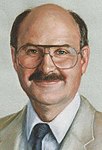British Columbia general election, 1991
|
|
|||||||||||||||||||||||||||||||||||||||||||||||||
|---|---|---|---|---|---|---|---|---|---|---|---|---|---|---|---|---|---|---|---|---|---|---|---|---|---|---|---|---|---|---|---|---|---|---|---|---|---|---|---|---|---|---|---|---|---|---|---|---|---|
|
|||||||||||||||||||||||||||||||||||||||||||||||||
|
75 seats of the Legislative Assembly of British Columbia 38 seats were needed for a majority |
|||||||||||||||||||||||||||||||||||||||||||||||||
|
|||||||||||||||||||||||||||||||||||||||||||||||||
|
|||||||||||||||||||||||||||||||||||||||||||||||||
The British Columbia general election of 1991 was the 35th provincial election in the Province of British Columbia, Canada. It was held to elect members of the Legislative Assembly of British Columbia. The election was called on September 19, 1991, and held on October 17, 1991. The incumbent Social Credit Party of British Columbia, which had been beset by scandals during Bill Vander Zalm's only term as premier, was defeated by the New Democratic Party of Mike Harcourt. Liberal Party leader Gordon Wilson surprised observers by leading his party to winning one-third of the votes cast, and forming the official opposition in the legislature. The new legislature met for the first time on March 17, 1992.
The election was held at the same time as a referendum on recall and initiative. It was also the first British Columbia general election with only single-member districts.
Under Vander Zalm's leadership, Socred's control shifted from urban fiscal conservatives to social conservatives, causing the coalition to unravel and pushing many moderates to eventually switch to the Liberals. This process was exacerbated by Vander Zalm's eccentricity, and the constant scandals that plagued his government, cumulating in one which was a conflict of interest. As well, Vander Zalm allowed his principal secretary, David Poole, to amass a substantial amount of power, despite being unelected.
...
Wikipedia

